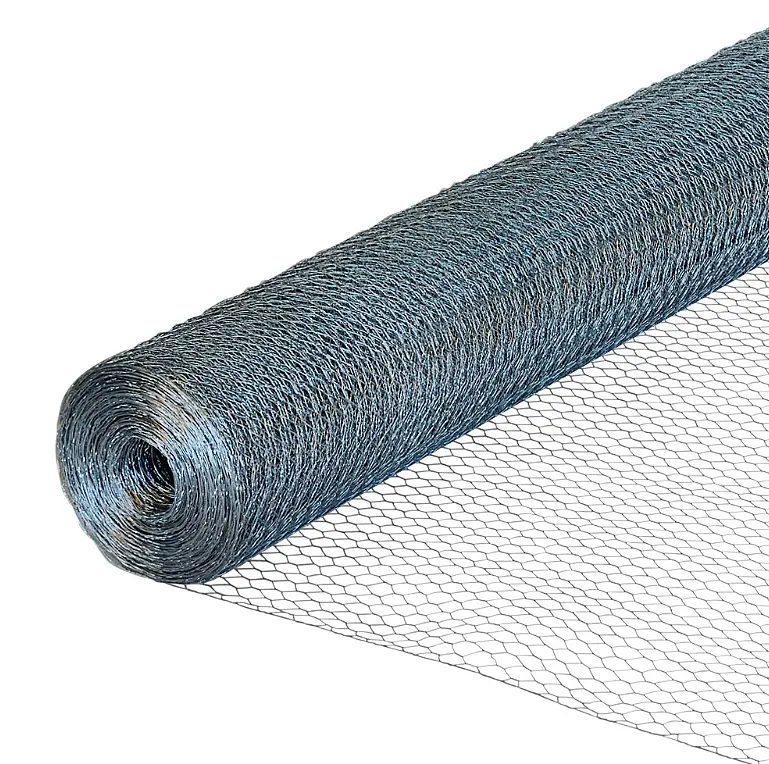Chicken wire is available in various gauges (wire thicknesses), and the choice of gauge depends on the intended application and the level of strength or durability required.
Here are some common gauges of chicken wire and their recommended applications:
20 Gauge: This is a relatively lightweight gauge of chicken wire. It is suitable for applications where moderate containment is required, such as enclosing small poultry or creating fences for small animals like rabbits or ducks. It is also used for lightweight garden protection against small pests.
19 Gauge: Slightly thicker than 20 gauge, 19 gauge chicken wire offers increased strength and durability. It is suitable for similar applications as 20 gauge, but it provides a bit more robustness and resistance to bending or damage. It can be used for poultry enclosures, small animal cages, and garden protection.
18 Gauge: 18 gauge chicken wire is a medium-weight option that offers increased strength and durability compared to the lighter gauges. It is commonly used for poultry enclosures, garden protection against larger pests, and creating animal enclosures for small livestock like goats or sheep.
16 Gauge: This is a heavier gauge of chicken wire that provides even greater strength and durability. It is suitable for applications where a higher level of containment and durability is required, such as larger poultry enclosures, animal enclosures for medium-sized livestock, or fencing for areas prone to wildlife intrusion.
14 Gauge: 14 gauge chicken wire is a heavy-duty option suitable for demanding applications. It offers excellent strength and durability and is often used for larger animal enclosures, predator-proof fencing, or areas where there is a need for enhanced security.
It’s important to note that these gauge recommendations are general guidelines, and the specific requirements may vary depending on factors such as the size and weight of the animals being contained, the level of security needed, and the intensity of potential threats or risks in the area.
When selecting chicken wire, it’s advisable to consider the specific needs of your application and consult with a supplier or expert to ensure you choose the appropriate gauge that meets your requirements.
What gauge would you recommend for a chicken coop that needs to withstand harsh weather conditions?
For a chicken coop that needs to withstand harsh weather conditions, I would recommend using a heavier gauge of chicken wire to ensure durability and strength. A gauge of 16 or 14 would be suitable for this purpose.
Harsh weather conditions can include strong winds, heavy snow loads, or potential impacts from falling branches or debris. Using a heavier gauge chicken wire provides added resistance against these elements and helps prevent damage or breakage.
A gauge of 16 is a good balance between strength and cost-effectiveness.chicken wire wholesale It offers a substantial level of durability while still being manageable to work with. This gauge would be suitable for most chicken coops in areas with moderate to severe weather conditions.
If you anticipate particularly challenging weather conditions or if you want to prioritize maximum strength and longevity, you can opt for a gauge of 14. This heavy-duty gauge will provide extra resilience and resistance to harsh weather, ensuring the chicken coop remains secure and intact.
In addition to the gauge of the chicken wire, it’s also important to consider other factors for weatherproofing the chicken coop. This may include using a solid roof, proper insulation, and sealing any gaps or openings that could allow water or drafts to enter.
Ultimately, the specific gauge selection should be based on a combination of the severity of the weather conditions, the size and weight of the animals, and your budget. Consulting with a supplier or expert in your area can provide valuable guidance tailored to your specific needs.
